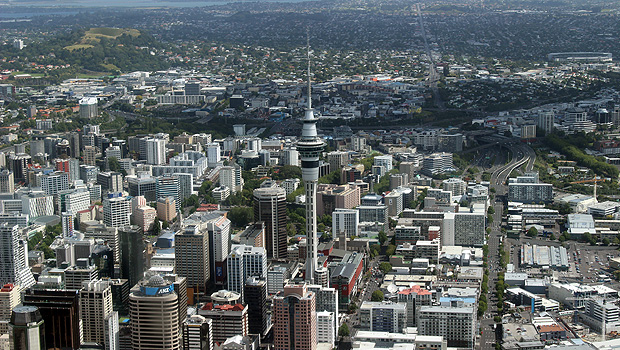Politics
Auckland Faces Real Estate Uncertainty Amid Policy Changes

Auckland is currently navigating significant changes in its real estate landscape, driven by new policies and evolving market conditions. Recently, the New Zealand government announced adjustments to visa regulations for foreign buyers, which could positively impact property transactions. Additionally, a series of interest rate cuts has been introduced, with expectations for further reductions in the near future.
The uncertainty surrounding these changes has sparked a great deal of concern among potential buyers and investors. The introduction of a new unitary plan has generated considerable debate within the community. This plan, which suggests the construction of three-storey homes on standard sections without required clearance, has not been well-received by many Auckland residents. Instead, the local government has opted to develop their own guidelines, leading to a focus on high-rise buildings around public transport hubs.
Public sentiment is mixed, with many residents expressing outrage and frustration over the potential implications of the new plan. It aims to accommodate the need for up to two million additional homes in Auckland, but the details remain vague and contentious. The lack of clarity is affecting the real estate market, as buyers are left questioning which neighborhoods will be impacted and how those changes might alter the landscape.
When considering potential properties, buyers are not only thinking about the home itself but also about what could arise in the surrounding area. For example, a recent property viewed in a mixed-use zone could potentially be developed into a 27-storey building, raising concerns about privacy and views. In another case, a house with a scenic harbour view might soon face competition from taller buildings being constructed nearby.
The uncertainty surrounding these developments is compounded by a general lack of trust in the planning process. Many Aucklanders feel that the current leadership has mishandled urban development, leading to skepticism about their ability to manage the city’s growth effectively.
As residents engage in heated discussions and express their concerns, a question arises: how many potential buyers are now reconsidering their plans to borrow, spend, or build? This hesitancy could lead to stagnation in the market, with individuals opting to wait before making significant financial decisions. In a city where housing is a central aspect of life, such indecision can have far-reaching consequences.
The ongoing discussions about Auckland’s real estate future highlight the need for clear communication and effective urban planning. As stakeholders navigate these changes, it remains crucial for the government to address community concerns and provide a transparent framework for the future of the city.
-

 World4 months ago
World4 months agoTest Your Knowledge: Take the Herald’s Afternoon Quiz Today
-

 Sports5 months ago
Sports5 months agoPM Faces Backlash from Fans During Netball Trophy Ceremony
-

 Lifestyle5 months ago
Lifestyle5 months agoDunedin Designers Win Top Award at Hokonui Fashion Event
-

 Entertainment5 months ago
Entertainment5 months agoExperience the Excitement of ‘Chief of War’ in Oʻahu
-

 Sports5 months ago
Sports5 months agoLiam Lawson Launches New Era for Racing Bulls with Strong Start
-

 World5 months ago
World5 months agoCoalition Forms to Preserve Māori Wards in Hawke’s Bay
-

 Top Stories2 weeks ago
Top Stories2 weeks agoTongan Star Eli Katoa Shares Recovery Update After Surgery
-

 Health5 months ago
Health5 months agoWalking Faster Offers Major Health Benefits for Older Adults
-

 Lifestyle5 months ago
Lifestyle5 months agoDisney Fan Reveals Dress Code Tips for Park Visitors
-

 Politics5 months ago
Politics5 months agoScots Rally with Humor and Music to Protest Trump’s Visit
-

 Top Stories5 months ago
Top Stories5 months agoUK and India Finalize Trade Deal to Boost Economic Ties
-

 Health2 months ago
Health2 months agoRadio Host Jay-Jay Feeney’s Partner Secures Visa to Stay in NZ









